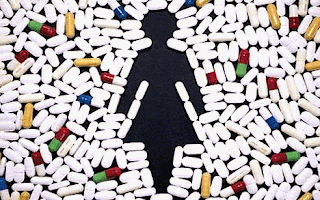THC vs. CBD: The Differences
THC (Tetrahydrocannabinol) and CBD (Cannabidiol) is the most prominent compounds in the cannabis plant. These two compounds are nearly identical twins which can be differentiated by the arrangement of a single atom.
How these compounds affect the body?
A Cannabinoid is a compound that interacts with our Endocannabinoid System (ECS) directly. In this system, two receptors were found as CB1 and CB2. CB1 receptors are found in brain region and are responsible for memory, emotion, high cognition, and motor coordination. While CB2 receptors are found in Central Nervous and Immune systems.
THC and CBD have different molecular structures so that they interact with CB1 and CB2 receptor in a different manner. This causes these two compounds to act in a different way. THC can directly bind to the CB1 receptor and creates a signal that has been sent to the brain, which gives you a high effect. While CBD cannot bind to CB1 receptor directly and it can also affect THC bond to the CB1 receptor, this results in neutralizing the psychoactive effect of THC.
Medical Effects:
CBD is used to help seizures, inflammation, pain, mental disorders, nausea, migraines, depression, and anxiety. THC is used to help muscle spasticity, glaucoma, insomnia, pain, low appetite, and nausea.
THC causes temporary side effects such as increased heart rate, dry mouth, red eyes, slower reaction times and memory loss. CBD can be tolerated, even in large doses. If CBD causes any side effects that are due to the interaction between CBD and the other medications you may be taking.
Conclusion:
CBD and THC look similar but slightly different in its molecular structure and its activity. Both have medical benefits, while THC has side effects too. They are both considered safe. But remain illegal in some states. If you are taking any of these two compounds, you have to consider side effects and interactions with other medications of these compounds and also know the laws of your state.



Comments
Post a Comment